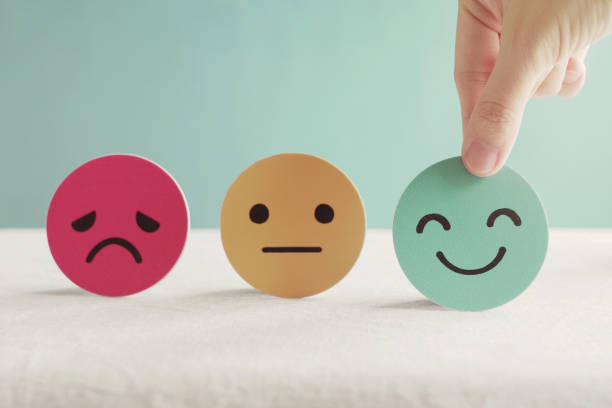Emotional regulation is a person’s ability to regulate their emotional state which involves rethinking a challenging situation to avoid or reduce anger or distress and sometimes hiding signs of sadness and fear and focusing on reasons that make you feel happy and calm. It also involves analysing the emotion when you have it and also analysing your reaction to the emotion (how you experience and express it).
Emotional regulation is an art. It is a skill that we’re not born with but has to be learned over life. Especially when it comes to children, their mood swings like a pendulum, and regulating that wide range of emotions is a challenge that every parent faces.
Learning to self-regulate is one of the most important steps for emotional well-being, the foundations of which should be laid in the earliest years of life. As children develop the capacity to regulate their emotional state and reactions, it has a long-term positive impact on their mental health, relationships with family, friends, and peers, academic performance, and overall social behaviour.
Why is emotional regulation important?
Shot of stressed business woman working from home on laptop looking worried, tired and overwhelmed.
Imagine you don’t know how to manage your stress, you might say or do things that you will regret later.
This is not unusual, but that’s not appreciable either.
We’re all bound by the norms of social behaviour, maybe not as children but surely as adults. One should have the ability to manage negative emotions like anger and anxiety to deal better in workspaces and society.
There are obvious hazards of not regulating emotions effectively whether it is in the form of strained bonds from overreaction or the plight of foregone opportunities. Emotional regulation comes across as an element of mental illness that in the long term, significantly affects a person’s professional and personal life. Especially in children, emotional dysregulation can result in chronic behavioural and emotional disorders. They are at risk of developing clinical depression.
People with no or low ability to regulate emotions find it harder to make and keep friends and relationships. This can result in negative traits like withdrawal, anxiety, and anger which further snowball into more negative consequences including substance abuse, anti-social behaviour, and bullying.
Overall, emotional dysregulation, in many ways, is associated with one’s well-being and life satisfaction.
Can we control our emotions?
Well, psychology says there are ways to do that.
While there are many ways to control our emotional state for the better, it all starts with something called “down-regulation”. This is a method of reducing the intensity of your emotions”. As it’s rightly said, excess of anything is bad, excess of any emotion is the worst place to be in.
But how do you reduce the power of a particular emotion?
Just like you would balance out the spiciness in your curry with some salt, a grieving person can regulate their sadness by recalling what makes them happy, an anxious person can regulate their anxiety by distracting the thought that troubles them.
Alongside the down-regulation, what works effectively for emotional regulation is what we call “up-regulation”. This involves amping up your emotions depending on the situation you are in. When you’re close to a challenging situation, a healthy dose of anxiety can help you come out of it.
One important point to note as we talk about self-regulating emotions is to understand that it varies from person to person and situation and situation.
It’s not always that you can replace or suppress emotions. You will have to first acknowledge, monitor, and then adapt emotions as per the situation.
Positive impacts of emotional regulation
Once emotional regulation is learned (which is an ongoing process), it can lead to many positive outcomes. Starting from healthy and fulfilling relationships to good academic performance, and success, good emotional regulation at a younger age can take you far.
Children who self-regulate their emotions usually have better attention spans and concentration. They have stronger problem-solving abilities and perseverance to achieve long-term goals.
As adults, such individuals end up having higher job satisfaction, higher tolerance, and more resilient mental health.
So, emotional regulation is definitely an essential skill for children to develop at a tender age so that it can help them throughout life.
What factors impact emotional regulation in children?
Research shows that children have varied capabilities to self-regulate emotions. While some children are innately more capable of self-regulating, others have a harder time learning emotional regulation skills.
The capacity to self-regulate comes from. both genetics and the environment a child grows up in. Children can only learn to manage their emotions when in an appropriate environment. The life experiences and the situations are like the construction material that goes into the building of the house. What you have before that, the blueprint (the genetically acquired brain structure in this case) only develops through the building phase with time. The optimal time for making relevant changes and learning the skills is the sensitive age, childhood all the way through the twenties when the brain is still developing and responses to situations keep refining.
Close-up of a mental health counselor taking notes during a therapy session with a client in her office
This implies that there are many elements involved in helping children regulate their emotions. It starts with parents, who have paramount responsibility in building a good environment at home. Then come teachers, schools, neighbourhoods, peers, society, and culture. The role of counsellors and therapists is also crucial to help parents develop suitable parenting styles and foster a healthy emotional environment at home. In a child or student therapy, counsellors actively help children develop better self-regulation skills and also identify suitable career paths for themselves where they can unleash their true potential.
We know now, how emotional regulation goes a long way in making life happy and fulfilling for individuals. The time is now to start working on our emotional muscles and strive to create a supportive environment around us.
It’s never too late to start, and this is worth all the effort!



